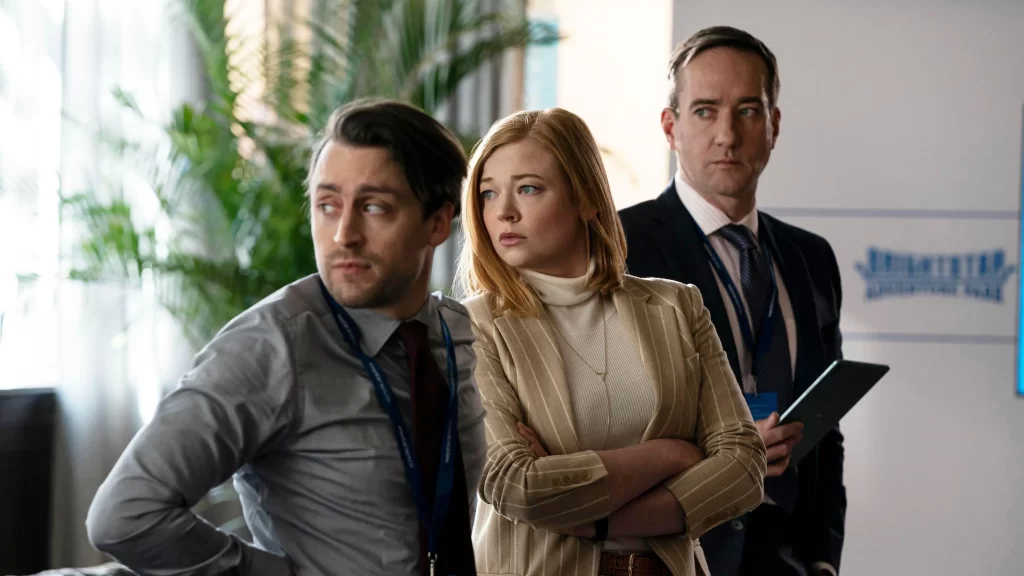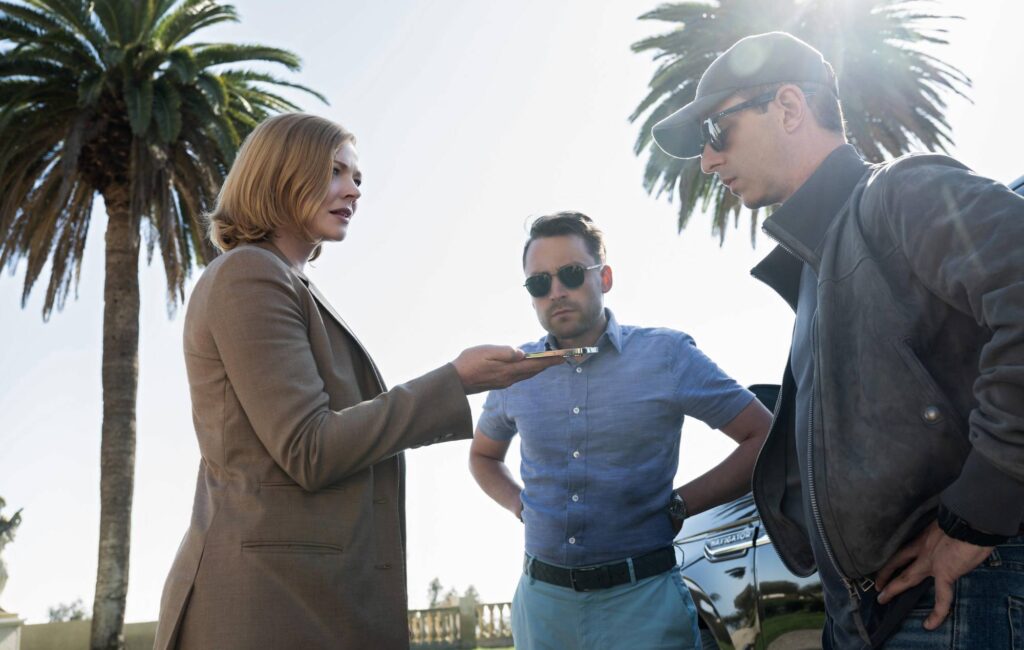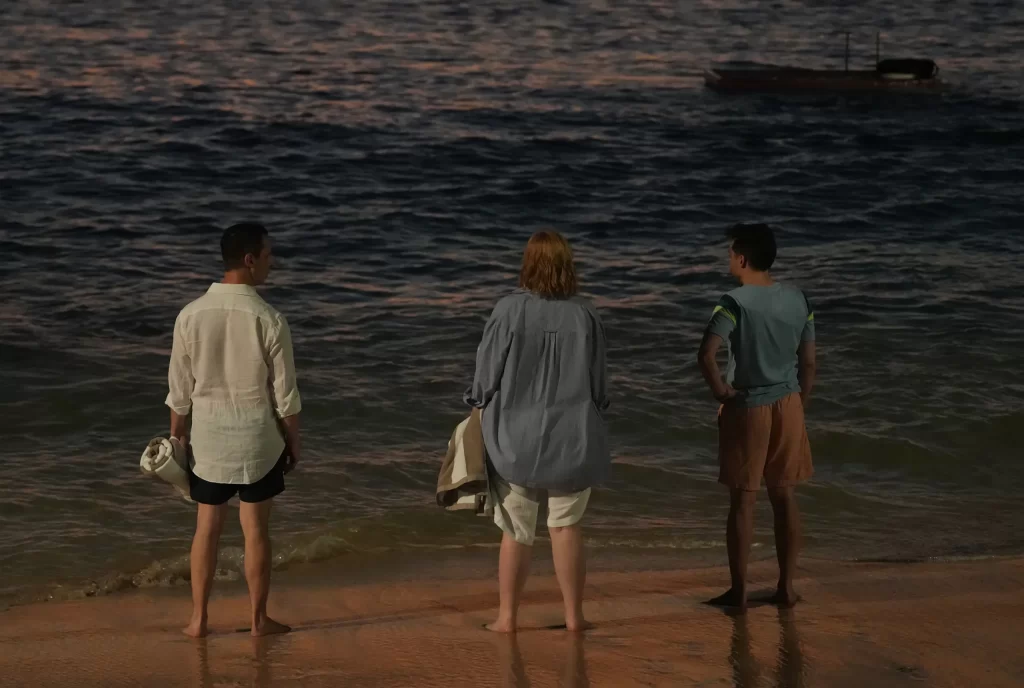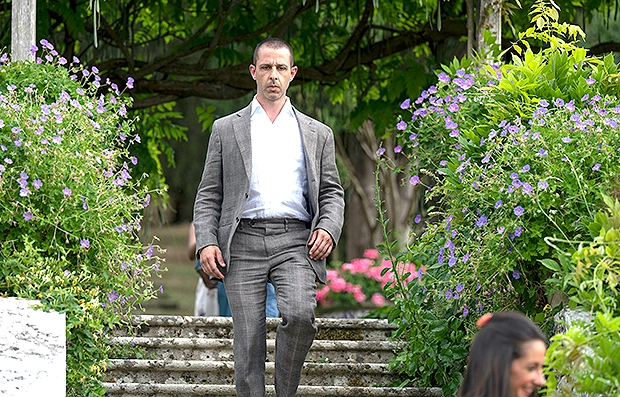In a television landscape often saturated by predictable plots and formulaic storytelling, Succession stands out as a shining example of unique and captivating storytelling. It bid farewell in spectacular fashion by delivering an impeccable conclusion that leaves a lasting impact on viewers. As the final chapter of this extraordinary saga draws to a close, it is impossible not to reflect on Succession’s last part of the journey.

The family’s constant power struggle to control their empire, and Waystar Royco, was in its endgame from the beginning of the season.
From the start, Succession was about the lives of the wealthy and influential Roy family, led by the enigmatic patriarch, Logan Roy. The final season took us to the conclusion of what the show was all about – who would take control of the global media conglomerate Waystar RoyCo, which was the narrative from the first episode of the first season.
The fourth season’s central plot revolved around the deal with GoJo, a tech streaming giant, and the power struggle within the Roy family as well as Waystar’s top management. We could see the rift among the characters regarding this deal and dive headfirst into their high-stakes world. This season took us deeper into the complexities of family dynamics, generational conflicts, and the corrosive effects of unchecked capitalism. The power dynamics within the family reached a boiling point and led to unexpected alliances and betrayals.

In the early episodes of this season, a significant event occurred that reverberated throughout the entire season. This shocking event forced the characters to confront their own vulnerabilities and strong emotions. It also had the potential of altering the course of the GoJo deal and testing the loyalties of the Roy siblings.
Succession’s Season 4 not only lives up to the high standards set by its previous seasons but also surpasses them in many ways.
In comparing Season 4 to previous standout seasons like Season 2, it becomes evident that the show has reached new heights in terms of its narrative complexity and character development. This season’s ability to maintain high suspense and intrigue while further developing the characters’ arcs was spectacular.
Like its previous seasons, this season has also been a social commentary on contemporary issues. We could see the writers deftly weave in themes of democracy’s decay, the rise of populism, and the influence of corporate tycoons on society.
The character development of the siblings as well as other characters was a key highlight of this season. The siblings’ back layers were peeled to reveal their motivations, fears, and vulnerabilities. Each sibling faced personal and professional challenges that forced them to confront their flaws and question their place within the family empire.

The growth and evolution of these characters elevated the storytelling and went on to give more nuances to the complex and compelling individuals. Through the trials and tribulations, we witnessed their growth, even if it came at a great cost.
This season didn’t shy away from the darkest aspects of human nature and exposed the lengths individuals would go to protect their own self-interests.
Succession’s exploration of the morally bankrupt and morally ambiguous remained integral to this season. The characters were deeply flawed, selfish, and often cruel, yet you find them strangely relatable and undeniably human. They were driven by their desires, insecurities, and the relentless pursuit of validation and power.
We could witness the delicate balance between love and manipulation, trust and betrayal, and the blurred lines between personal and professional relationships. It reminded us that even the most powerful individuals were not immune to the pitfalls of human emotions and the consequences of their actions.
Succession’s writing weaves a tale of Machiavellian intrigue, sharp wit, and social commentary.
The writers made each episode a carefully crafted narrative symphony by blending humor, drama, and satire. The dialogue, crackled with tension, made the experience much more worthwhile and left a lasting impact on viewers.
Throughout the final episodes, the writers ensured that tension peaked with the power dynamics within the family and the company hanging in the balance. The plot took uncountable unexpected turns and ensured viewers were on the edge of their seats.
The show’s ability to surprise and subvert expectations even at the last few moments was indeed a testament to superb writing and expert storytelling. The writers made us beautifully navigate the intricate web of alliances, betrayals, and power plays while being fully invested.

The performances by the ensemble cast were exceptional, with standout portrayals of each character.
Season four also introduced compelling character arcs and developments that added depth and complexity to the narrative.
Jeremy Strong embodied how Kendall Roy went through so much for his ambition and inner demons. Sarah Snook showed us the cunning and ambitious Shiv Roy. Matthew Macfadyen shined as Tom by portraying the character’s inner struggle between ambition and morality.
Kieran Culkin, in particular, surprises with a breakout performance, showcasing Roman Roy’s layers of insecurity and longing for validation.
The entire cast, including J. Smith Cameron, Nicholas Braun, and the parade of guest stars, brought their A-game to infuse their characters with layers of vulnerability, cunning, and desperation.
The technical aspects of the series were equally commendable – be it direction, cinematography, set designs, or music.
Succession’s visual and technical prowess in this season further elevated its status as a masterpiece of contemporary television. The direction by a talented group of directors, including Mark Mylod and Lorene Scafaria, brings visual panache to each episode. The cinematography capturing the luxury of the Roys’ world while simultaneously exposing its inherent emptiness was breathtaking.

The music, with its melodies and pulsating beats, enhanced the tension and intensity of each scene. The show’s meticulous attention to detail in set design, costume choices, and cinematography added another layer of authenticity to the narrative. Its stunning production values matched the emotional depth and complexity of the storylines.
The show-runner Jeremy Armstrong goes on, “I don’t feel like I’ll be able to write anything as good as this again because I just feel like it’s an arena that I’m so interested in, and the group of people who’ve made it have been so talented.”
The series ended on a high note by encapsulating the overarching themes and conflicts brewing since the show began. The finale struck a delicate balance between resolution and open-endedness, leaving room for interpretation and contemplation. It provided closure while acknowledging the complexities and inherent contradictions of the character’s lives and their world.
As the final credits rolled, we bid farewell to the Roy family and the captivating world of Succession. We are left with a profound appreciation for the depth and brilliance that it has brought to our screens. It will be missed, but its legacy as a remarkable and unforgettable television series will continue to resonate with its fans for years to come.






















